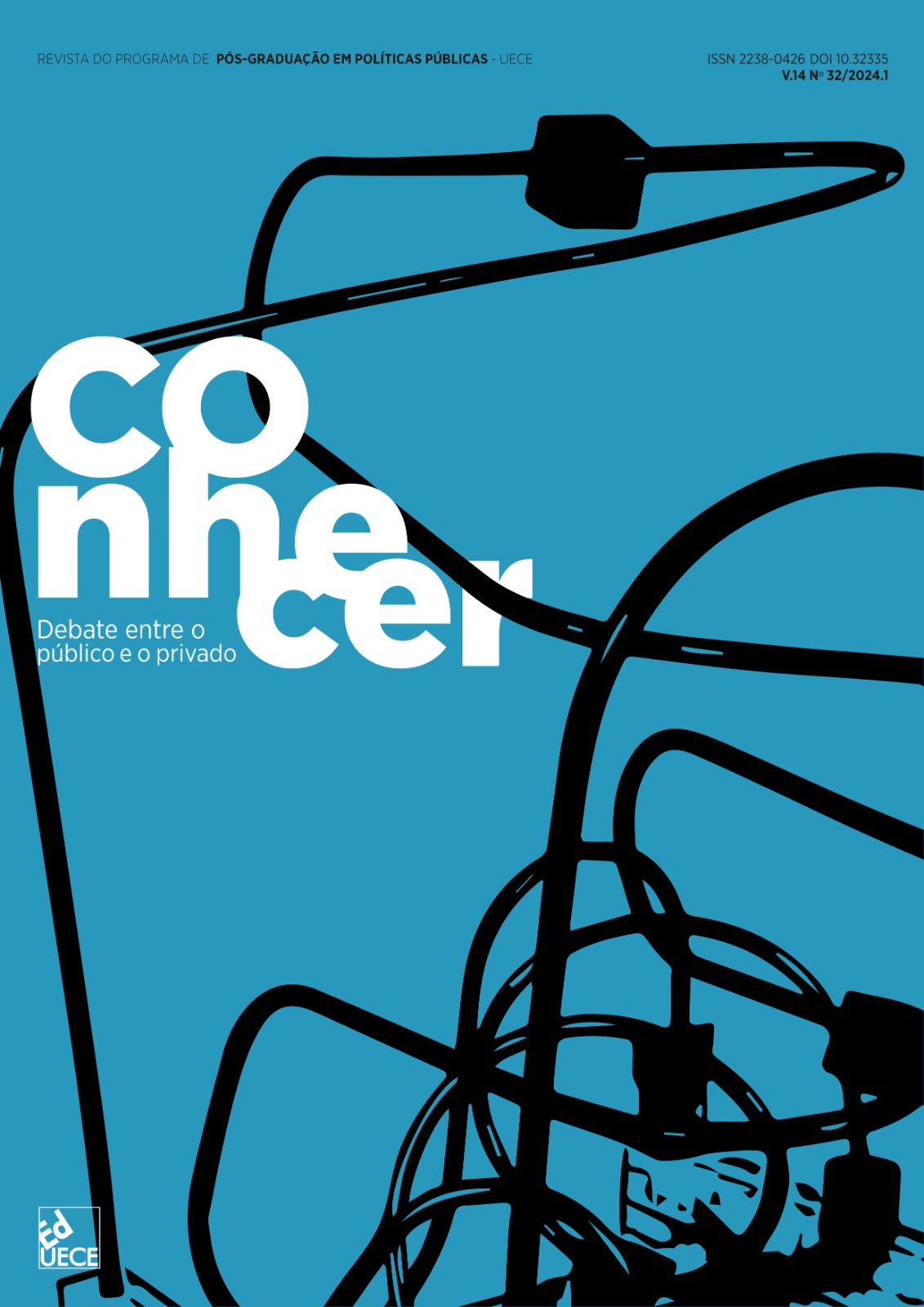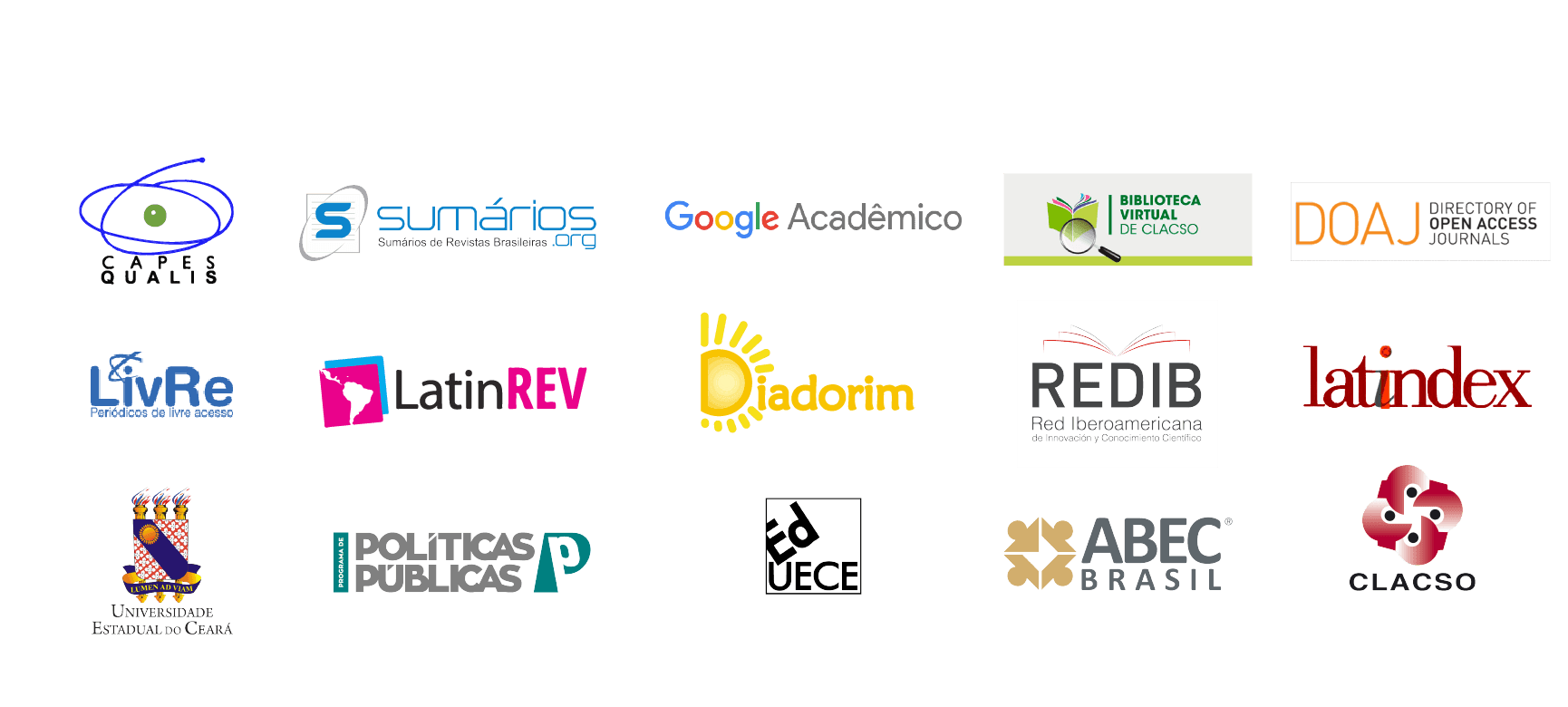External educational assessments and the paradigm of the educating city:
Juazeiro do Norte
DOI:
https://doi.org/10.32335/2238-0426.2024.14.32.12587Keywords:
learning, education, school, citizenshipAbstract
This article focuses on the proximity and/or distance of Juazeiro do Norte, Ceará, Brazil, from the profile of educating city. The results of two major external educational assessments are analyzed: the Basic Education Development Index (Índice de Desenvolvimento da Educação Básica [IDEB]); and the Permanent Basic Education Assessment System of Ceará (Sistema Permanente de Avaliação da Educação Básica do Ceará [SPAECE]). The general objective is to analyze the results from the SPAECE and the IDEB, between 2009 and 2022, verifying what these indicators reveal about the quality of Juazeiro’s education and how they reflect or not this municipality as an educating city. This is a quali-quantitative research, carried out through a bibliographic review and collection of statistical data from the portal IBGE Cidades, the Ceará State Department of Education (Secretaria da Educação do Estado do Ceará [SEDUC-CE]), and the 2022 Demographic Census. It was found that Juazeiro do Norte shows signs of educational potential, however, that the municipal education system needs improvements. Therefore, with regard to getting closer to the profile of an educating city, first the municipality needs to overcome the barriers inherent to learning and basic education quality and, a posteriori, advance in designing policies as an educating city.
Downloads
References
Aieta, V. S., & Zuin, A. L. A. (2012). Princípios norteadores da cidade educadora. Revista de Direito da Cidade, 4(2), 193-232.
Barbosa, H. (2021, 15 de setembro). Apenas 60% dos estudantes da rede pública no Ceará têm acesso à internet, aponta IBGE. Diário do Nordeste. https://diariodonordeste.verdesmares.com.br/regiao/apenas--60-dos-estudantes-da-rede-publica-no-ceara-tem-acesso-a-internet-13141039::-Apesar%20de%20figurar%20entre%20os,Geografia%20e%20Estat%C3%ADstica%20(IBGE)
Chirinéa, A. M., & Brandão, C. F. (2015). O IDEB como política de regulação do Estado e legitimação da qualidade: em busca de significados. Ensaio: Avaliação e Políticas Públicas em Educação, 23(87), 461-484.
Decreto n. 6.094 de 24 de abril de 2007. (2007). Dispõe sobre a implementação do Plano de Metas Compromisso Todos pela Educação, pela União Federal, em regime de colaboração com municípios, Distrito Federal e estados, e a participação das famílias e da comunidade, mediante programas e ações de assistência técnica e financeira, visando à mobilização social pela melhoria da qualidade da educação básica. https://www.planalto.gov.br/ccivil_03/_ato2007-2010/2007/decreto/d6094.htm
Constituição da República Federativa do Brasil. (1988, 5 de outubro). Brasília, DF. https://www.planalto.gov.br/ccivil_03/constituicao/constituicao.htm
Fernandes, R., & Gremaud, A. (2009, 25 de abril). Qualidade da educação: avaliação, indicadores e metas. FGV Social. https://www.cps.fgv.br/ibrecps/rede/seminario/reynaldo_paper.pdf
Gadotti, M. (2006). A escola na cidade que educa. Cadernos Cenpec, 1(1), 133-139.
IBGE Cidades. (2023). Índice de Desenvolvimento da Educação Básica - Juazeiro do Norte. https://cidades.ibge.gov.br/brasil/ce/pesquisa/40/78187?tiporanking
Instituto Nacional de Estudos e Pesquisas Educacionais Anísio Teixeira. (2023). Índice de Desenvolvimento da Educação Básica. https://www.gov.br/inep/pt-br/areas-de-atuacao/pesquisas-estatisticas-e--indicadores/ideb
Rodrigues, S. C., Netto, R. L. C., Donato, S. P., & Oliveira, M. M. F. (2022). Cidades educadoras e escolas: entre concepção e a realidade. Concilium, 22(7), 61-74.
Secretaria de Educação do Estado do Ceará. (2022). Histórico do SPAECE. https://www.ced.seduc.ce.gov.br/sobre-o-evento/
Simões, J. M. S. (2010). Cidades em rede e redes de cidades: o movimento das cidades educadoras (Dissertação de Mestrado). Universidade de Coimbra, Coimbra.
Zitkoski, J. J (2006). Educação e emancipação social: um olhar a partir da cidade educadora. Revista Espaço Pedagógico, 13(1), 9-18.
Downloads
Published
How to Cite
Issue
Section
License
Copyright (c) 2025 Conhecer: debate entre o público e o privado

This work is licensed under a Creative Commons Attribution 4.0 International License.
Authors who publish in this journal agree with the following terms:
- Authors retain the copyright and grant the journal the right of first publication, and the study is simultaneously licensed under the Creative Commons Attribution License, which allows sharing the study by acknowledging authorship and initial publication in this journal.



